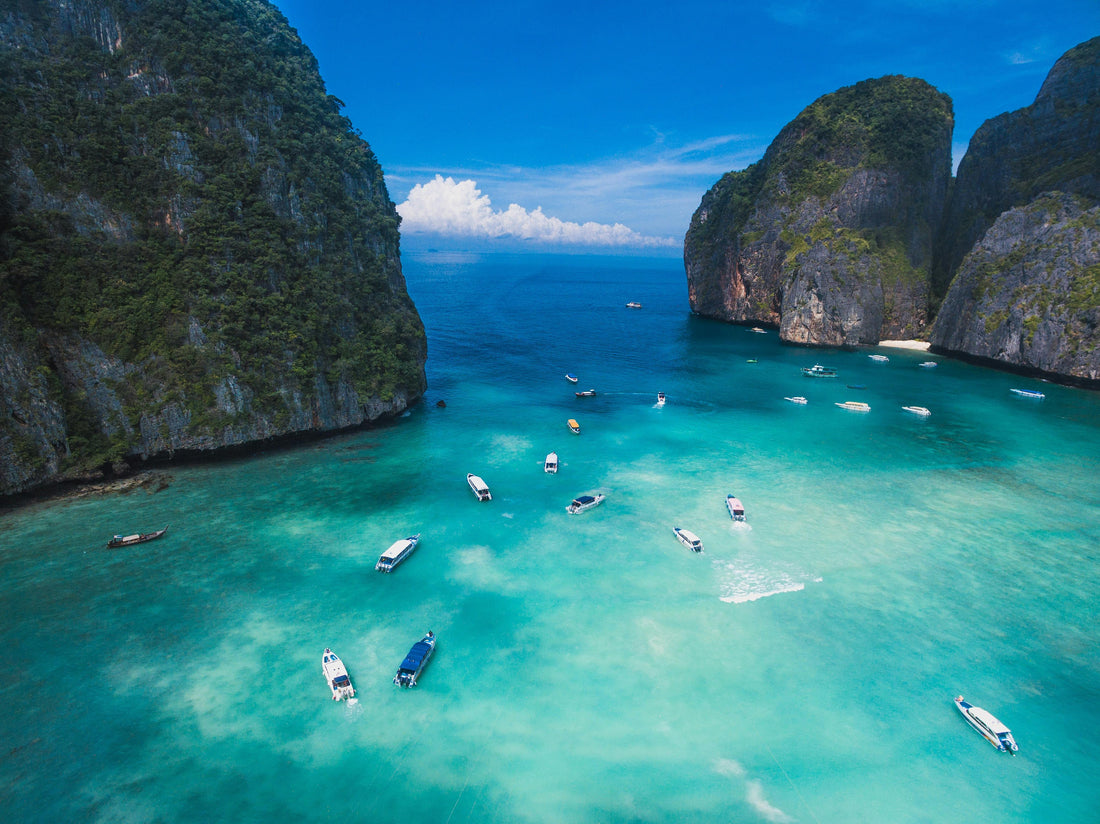
The Beach
Share
Alex Garland, an English author and screenwriter, published the novel The Beach in 1996, quickly becoming a cult classic among travelers and young adventurers. Garland, later known for films like Ex Machina and Annihilation, combines intense sensory detail with a dark psychological depth in the book. It was praised for its ability to depict both the allure of paradise and the dangerous consequences of human ambition. The novel captured a generation of backpackers with its dreamlike portrayal of hidden beaches and small utopian communities, though it was also criticized for romanticizing risky travels and the longing for paradise. In 2000, the story was adapted into a film starring Leonardo DiCaprio. Produced by Touchstone Pictures and directed by Danny Boyle, the movie received mixed reviews: some praised its visual style and thrilling pace, while others argued it lost some of the novel’s psychological nuance. Nonetheless, the adaptation cemented The Beach as an iconic cultural phenomenon, inspiring imaginations about hidden, perfect places far from the noise of civilization.
In 2000, the story was adapted into a film starring Leonardo DiCaprio. Produced by Touchstone Pictures and directed by Danny Boyle, the movie received mixed reviews: some praised its visual style and thrilling pace, while others argued it lost some of the novel’s psychological nuance. Nonetheless, the adaptation cemented The Beach as an iconic cultural phenomenon, inspiring imaginations about hidden, perfect places far from the noise of civilization. In the heart of Thailand lies a mythical, secret beach, hidden among lush forests and crystal-clear lagoons. Richard, a young British backpacker, arrives in Thailand with a backpack and dreams of adventure. At a bustling hostel, he hears stories of a beach that few ever find – a place where a small community has created its own utopian existence. Driven by curiosity and a longing for something greater than himself, Richard embarks on the perilous journey through the jungle and unknown paths, each step bringing him closer to paradise.
In the heart of Thailand lies a mythical, secret beach, hidden among lush forests and crystal-clear lagoons. Richard, a young British backpacker, arrives in Thailand with a backpack and dreams of adventure. At a bustling hostel, he hears stories of a beach that few ever find – a place where a small community has created its own utopian existence. Driven by curiosity and a longing for something greater than himself, Richard embarks on the perilous journey through the jungle and unknown paths, each step bringing him closer to paradise.
When he finally sets foot on the beach, an almost unreal beauty unfolds: white sandy shores, green cliffs, and water so clear that the bottom is visible even in the deep. The few inhabitants welcome him, and at first, everything seems peaceful and harmonious. For a moment, it feels perfect – an apparent paradise where humans live in harmony with nature and one another.
Yet the idyll is fragile. Behind smiling faces and beautiful landscapes lurk conflicts, jealousy, and fear of outsiders. Richard witnesses how the dream of a perfect society is slowly undermined by human nature: desire, ego, and desperation emerge, revealing the darker side of the seemingly idyllic community. The beach, once a sanctuary, becomes a mirror of human weakness and the fragility of morality.
Richard is confronted with harsh truths about freedom and responsibility. The dream of paradise comes at a price, and his experience becomes a journey through beauty, danger, and self-discovery. The story of The Beach reminds us that even the most perfect places cannot escape the complexities of human nature, and that dreams of utopia will always contain both light and shadow.

